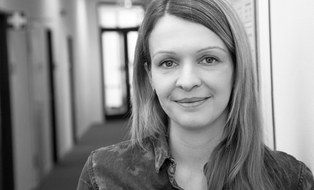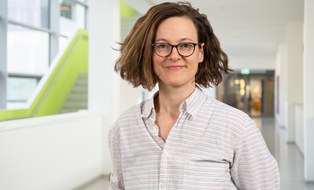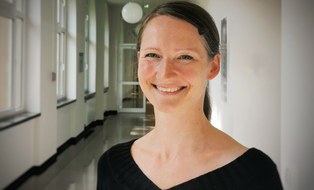Sozialmedizin und Public Health
Inhaltsverzeichnis
Inhalte des Forschungsbereichs
Die Forschung zum Thema "Sozialmedizin und Public Health" widmet sich mit einem breiten Spektrum an wissenschaftlichen Methoden (qualitativen Erhebungen ebenso wie analytischen Fallkontrollstudien und Kontrollstudien sowie clusterrandomisierten RCT) der Prävention von Krankheiten. Schwerpunktmäßig werden Public-Health-relevante häufige Erkrankungen betrachtet: Muskel-Skelett-Erkrankungen, Herz-Kreislauf-Erkrankungen, Krebserkrankungen und psychische Erkrankungen. Neben der ätiologischen Forschung kommt auch der Versorgungsforschung - insbesondere der Versorgungsforschung im beruflichen Kontext - eine besondere Bedeutung zu: Das berufliche Setting bietet einen wichtigen Anknüpfungspunkt für Krankheitsprävention und Gesundheitsförderung breiter Bevölkerungsschichten. Zur tatsächlichen Wirksamkeit konkreter Präventionsmaßnahmen im betrieblichen Kontext gibt es allerdings noch erhebliche Wissenslücken.
Nicht zuletzt ist das gesellschaftliche Verständnis von "Arbeit" gegenwärtig einem raschen Wandel unterzogen, hier lauten die Schlagwörter Flexibilisierung, Prekarisierung, Arbeitsverdichtung, Aktivierung, Entgrenzung. Wir stellen uns der Frage, welche präventivmedizinischen, Public Health-bezogenen und gesellschaftlichen Konzepte dieser Wandel erforderlich macht.
Ergebnisse unserer Forschungstätigkeiten finden sich bei den Publikationen des FB3.
Bereichsleitung
 © Stephan Wiegand
© Stephan Wiegand
Wissenschaftlerin, Studiengangskoordinatorin MPH
NameDr. rer. medic. Maria Girbig M.Sc.
Eine verschlüsselte E-Mail über das SecureMail-Portal versenden (nur für TUD-externe Personen).
Wissenschaftler:innen
 © Stephan Wiegand
© Stephan Wiegand
Institutsdirektor
NameProf. Dr. med. Andreas Seidler MPH
Eine verschlüsselte E-Mail über das SecureMail-Portal versenden (nur für TUD-externe Personen).
 © Michael Kretzschmar
© Michael Kretzschmar
Mitarbeiterin Forschung
NameCharlotte Pietzsch
Eine verschlüsselte E-Mail über das SecureMail-Portal versenden (nur für TUD-externe Personen).
 © Christiane Schefter
© Christiane Schefter
Wissenschaftlerin
NameChristiane Schefter MPH
Eine verschlüsselte E-Mail über das SecureMail-Portal versenden (nur für TUD-externe Personen).
 © Michael Kretzschmar
© Michael Kretzschmar
Mitarbeiterin Forschung
NameSusanne Titze
Eine verschlüsselte E-Mail über das SecureMail-Portal versenden (nur für TUD-externe Personen).
Ausgewählte Forschungsprojekte
KitaGesund - Daten für Taten im Kita-Alter zur Entwicklung und Etablierung von Präventions- und Gesundheitsförderungsmaßnahmen (ein durch das Bundesministerium für Gesundheit (BMG) gefördertes Kooperationsvorhaben)
„Kontaktlose“ Angebote medizinischer und beruflicher Rehabilitation – eine systematische Bestandsaufnahme und kritische Bewertung"
„Belastungsanalyse physiotherapeutischer und ergotherapeutischer Tätigkeiten und Untersuchung berufsbezogener Risikofaktoren für Beschwerden und Erkrankungen der oberen Extremitäten, unter besonderer Berücksichtigung der Rhizarthrose“
